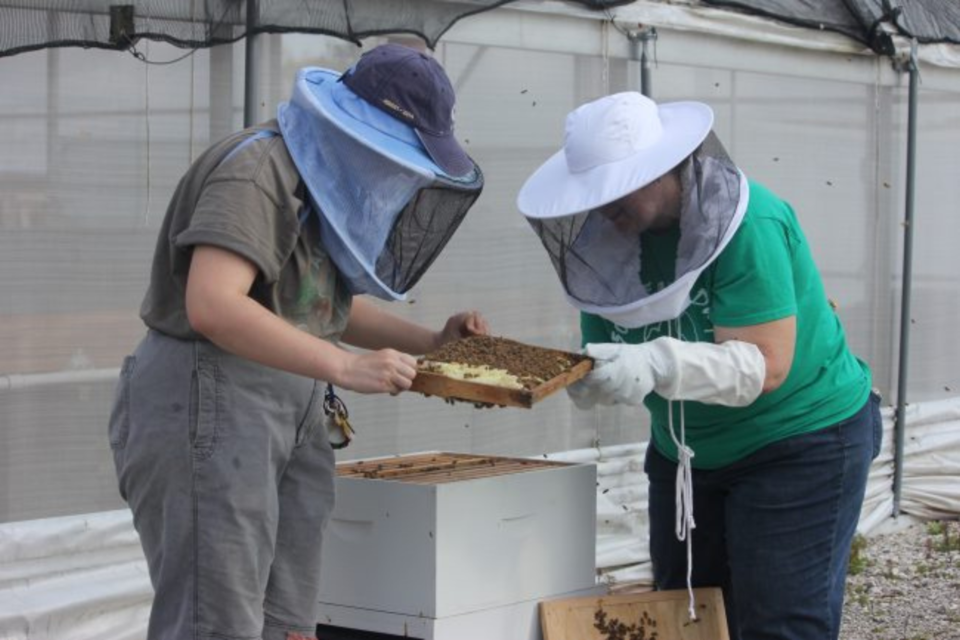There’s some news buzzing around Georgia Southern University – literally! The Armstrong Campus EcoAdvocates Club in collaboration with the Sustainable Aquaponics Research Center (SARC) has taken steps toward environmental sustainability by introducing bees to campus.
Sarah Beth Waller, a biology junior at Georgia Southern, began beekeeping five years ago while living in suburban Atlanta. Since then, she has become a certified beekeeper through the University of Georgia, has received grants through The Bee Cause Project to build additional beehives and has been featured in Bee Culture Magazine.
As part of their ongoing commitment to fostering a greener and more eco-friendly campus, Waller and the Armstrong EcoAdvocates Club have embarked on a new project that’s sure to sweeten the air and promote biodiversity. They’ve recently welcomed a hive of honeybees, and these industrious pollinators are now calling Georgia Southern home.
The two conventional hives house about 10,00 bees and a queen, and are located by the SARC greenhouse on the north side of the Armstrong Campus.
Bees play a crucial role in pollination which help local flora thrive and ensure the production of many of the fruits and vegetables. By establishing a bee colony on campus, the club aims to contribute to the preservation of biodiversity and raise awareness about the importance of these essential pollinators.
“Bees are essential both to our ecosystems and our society, since they pollinate about 75% of all flowering plants, which includes much of our food,” said Brigette Brinton, MS, SARC director and lecturer of biology at Georgia Southern University. “They’re a great addition to our campus to support the thriving campus arboretum and gardens, serve as an educational resource for courses and to facilitate research on the threats to bee populations globally.”
But their new place on campus isn’t just about expanding their place – it’s about saving their home. Last year, the yellow-legged hornet, a species of hornet that preys on honeybees was first detected in Savannah and the beekeeping community was put on high alert.
According to the United States Department of Agriculture, this invasive insect has the potential to endanger both domestic and wild honey bee populations, as well as native pollinators. Additionally, it could disturb the pollination process of numerous crops and further harm already vulnerable populations of native bees, which have been significantly reduced due to various factors.
The EcoAdvocates Club has not only brought bees to campus, but has also committed to caring for and maintaining the hive. Members of the club have undergone training in beekeeping and have collaborated with local experts at the Savannah Bee Company to ensure the well-being of our new winged residents.
This initiative aligns with the University’s broader sustainability goals and demonstrates the power of student-led initiatives in creating positive change. The bees on campus will serve as a living example of the positive impact individuals and groups can have on the environment when they come together with a shared vision.




